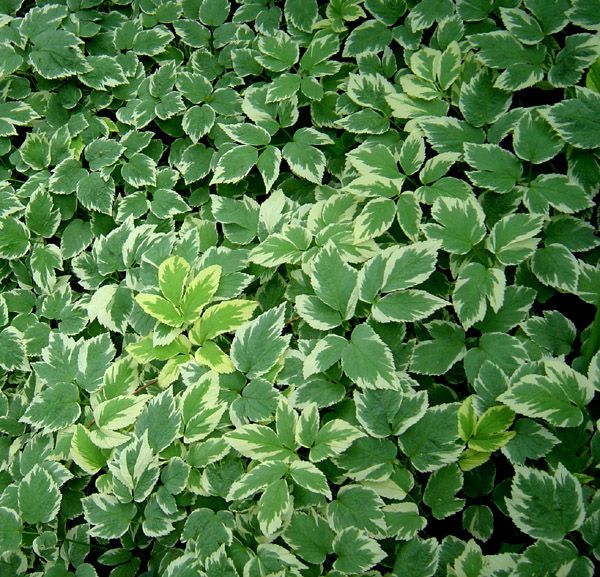Are you noticing ground elder? Are you struggling to contain it and want to kill it off before it spreads and crowds out your more desirable flowers and plants in your beds and borders? Wondering whether you can use a simple concoction of vinegar to do so? Well you’ve come to the right place. Here is what you are going to want to know.
So, will vinegar kill ground elder? Vinegar will kill ground elder, so long as you use a sufficient concentration and apply directly to the leaves. You do however, need to ensure you only apply the vinegar to ground elder, and not any other desirable plants and/or flowers you want to keep.
Sounds good right?
But how much to use, when to use it and how to keep your other plants safe?
Let’s now turn to those very things, shall we?

How To Make Vinegar Based Ground Elder Killer
Killing ground elder with vinegar is relatively simple. That being said there is still a way to do it and some best practices to follow.
Nevertheless, you can still use regular vinegar that you likely already have in your kitchen cupboard.
Or if you do need to buy some, here is the one to get from Amazon.
From there (once you have your vinegar), you just need to make the solution and apply.
What You Will Need
- 1 Gallon White Vinegar
- 1 Cup Table Salt
- 1 Tablespoon Liquid Dish Soap
- Large Bucket
- Funnel
- Spray Bottle
- Long Handled Spoon
- Plastic Container With Lid (optional)
How To Make Your Vinegar Elder Killer
- Pour 1 gallon of white vinegar into a large bucket.
- Add 1 cup of table salt and stir with a long-handled spoon until all the salt has dissolved.
- Next, stir in 1 tablespoon of liquid dish soap, ensuring it is mixed thoroughly.
- Using a funnel, decant the solution into a spray bottle.
- Any leftover solution can be stored in the spray bottle or a sealable container. Just make sure it’s stored in a cool, dark place and labeled properly.
From there, you can begin spraying the elder plant.
You can also use this to kill other weeds you find in your garden.
Be sure to spray the leaves of the elder plant only. This vinegar solution can (and will) kill other plants it comes into contact with.
How To Safely Use Vinegar To Kill Ground Elder
The best thing about using homemade vinegar solutions to kill undesirable plants like ground elder is that it is non-toxic to humans and unlikely to cause any harm.
That being said, you should wear gloves to avoid any potential irritation to the skin.
Here are some other best practices.
Spray Don’t Pour
It is strongly advised to spray ground elder leaves with your vinegar solution directly.
This will minimize the vinegar solution landing or absorbing into other plants or flowers you want to keep and retain.
Avoid Soil Contact
The salt in most vinegar-based weed killers is not great for the soil, and could even impact and reduce future growth.
It will also take an incredibly long time for the salt levels to reduce and soil quality to improve to a level where plants will happily thrive again.
So it’s important when using this weed killer to ensure you are spraying the weed directly on its leaves and stem and avoiding the soil beneath it as much as possible.
Use On Non-Windy And Sunny, Dry Days
On windy days, the vinegar solution could actually spread to other plants and flowers (from the ground elder you initially sprayed it on).
On rainy days, the solution could easily run into the soil.
Or, it will simply be washed off the leaves (and roots) of the elder and where you want it to work, or at the very least, be diluted.
So, only spray the solution on days that are less windy, and not likely to rain!
How Long Does Vinegar Take To Kill Ground Elder?
There is no definitive timeframe where a vinegar-based weed killer will kill ground elder, though you should expect some results within 24 hours after leaf spraying.
One thing to consider here is that ground elder is a perennial plant and may require a regular spraying with vinegar to keep it back.
How effective is vinegar at protecting your garden? Find out in my following guides:

